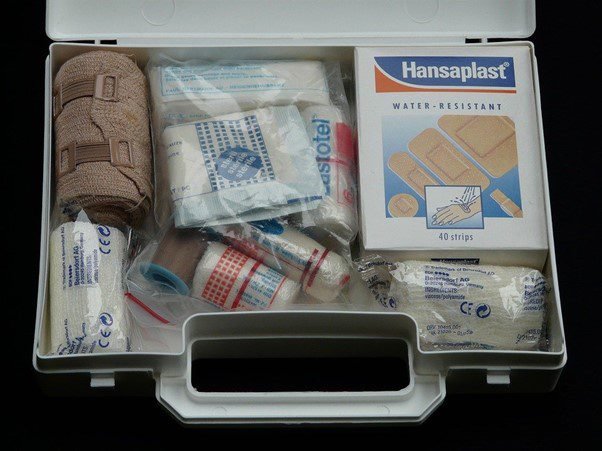Last Updated on February 12, 2025 by Bisma Sehar
We humans can plan all we want, but the truth is that the future remains unpredictable, and we can never know what the next second holds. Take health for an example; it is seriously unnerving when a family member or a friend suddenly falls ill or happens to be in an accident. In such abrupt circumstances, often, our first response is fear and panic. While anticipating when a medical emergency may arise isn’t possible, we can at least learn to stay prepared to avoid being caught off guard. Caution and vigilance go a long way. With the proper knowledge and tools at your disposal, you can tackle most health-related situations with ease and calm. That said, listed below are a few basic tips for managing sudden medical problems at home or work.
Table of Contents
1. Acquire an ACLS certification
Becoming a healthcare professional requires more than just knowledge, and rigorous training is crucial for all those who want to pursue this field as a career. However, there are a few life-saving skills that don’t require you to be a doctor or nurse; anyone can acquire them. These include basic life support training and ACLS certifications. Knowing a few basic techniques can help you help people experiencing sudden heart attacks, stroke, and other cardiovascular emergencies. This way, you can buy some time before EMS arrives and take over the situation. So, consider looking for an educational institute or training center that provides ACLS certification near me and get your license to administer essential life support skills. You can also obtain your certificate by taking an online course.
2. Keep an updated first-aid box
Whether you’re at work or home, having a first aid box nearby and ready-to-go is crucial to remedy cuts and bruises swiftly. A proper first-aid box should contain antiseptics, bandages, scissors, gauze dressing, thermometer, and sterile gloves. It must also include painkillers like paracetamol or aspirin, antihistamine creams or tablets, and sprays to relieve insect bites and deep muscular pain. Don’t forget to regularly check the expiry dates of all the items inside the box. You don’t want to worsen the situation by administering an expired product. Having a first-aid kit at hand helps prevent an injury or wound from getting worse, especially if blood loss is involved. I can also save a potential trip to the hospital or clinic. There are several First Aid training alternatives available like first aid training in Brampton which is unique and allows for the differentiation of true emergency response capabilities.
3. Always carry your personal details
While this may not seem all that important, having a current record of your personal information can help save your life- or someone else’s. Keeping a list of details like age, contact number, address, and who to contact in case of an emergency will ensure that you receive swift treatment if anything terrible happens. Also, try to keep a record of your medical conditions (diabetes, hypertension, and heart disease), history of allergies, blood group, and any medications you’re on. It can help guide others on how to assist you if need be. It will also help emergency services develop an appropriate treatment plan until you reach a healthcare facility.
4. Consider investing in a medical insurance
It is necessary to understand that a medical crisis can impact you emotionally, physically, and financially. With the constant increase in healthcare costs and a massive spurt in lifestyle diseases, investing in good medical insurance has become more crucial than ever. The health insurance safety net will assist in covering medical bills that you can’t afford on your own. Procedures like surgeries, lab work, scans, examinations, and even prescriptions drugs are by no means cheap and can add up to a lot. The cost can often even be high enough to cause you to go bankrupt. But with health insurance by your side, you’re not dealing with these costs alone. Instead, you have a team helping you navigate through the confusion of medical billing. Indeed, getting medical insurance ahead of time is a smart move to make.
5. Be aware of the closest hospital
It is only human to resort to fear and panic when faced with an abrupt situation. In case of a medical emergency, your priority would be to reach a medical professional without delay to prevent any severe damage. But when trying to rush to a hospital, searching through Google Maps and understanding the most feasible route might not be the most time-friendly option. You need to be well-informed of all the hospitals and clinics in your area so that you can swiftly reach one without any unnecessary delay.
6. Look into alternate caregiving responsibilities
If you’re a single parent or someone who oversees younger individuals, keep an emergency contact at hand who can temporarily take over your caregiving responsibilities. Having someone reliable look after your children or elderly parent if you ever have to be away will keep your heart at peace and ensure that the dependents are well-fed and taken care of.
7. Try to stay calm
While it is easier said than done, remaining calm and controlling your nerves in such emergencies is more necessary than you think. Since the person affected is likely already panicking, it is even more crucial to maintain your calm. Only if you keep a level head can you provide them with support and assurance. Moreover, stress affects one’s ability to make sound judgments, which is why people often end up making the worst decisions under pressure. Take a deep breath, gather yourself, and trust your instincts. Your knowledge will only come into use if you stay at ease and remain focused.
Conclusion
Holding your cool in the face of a medical crisis can often seem incredibly daunting. But know that, like any other situation, this too can only be managed with calm and patience. This article mentions a few tips to be ready in the wake of medical adversity. These include equipping yourself with basic life support skills, keeping an updated first-aid kit, getting medical insurance, knowing where the nearest hospital is, and having backup caregivers. Most importantly, remember to stay calm.
















